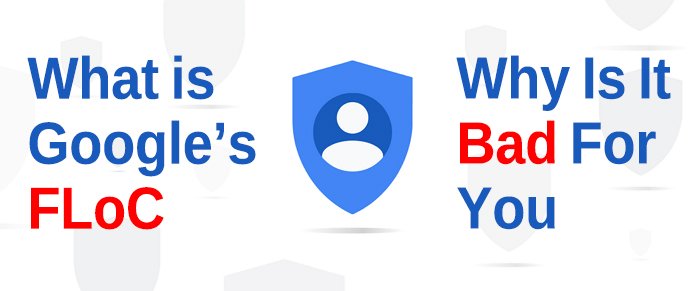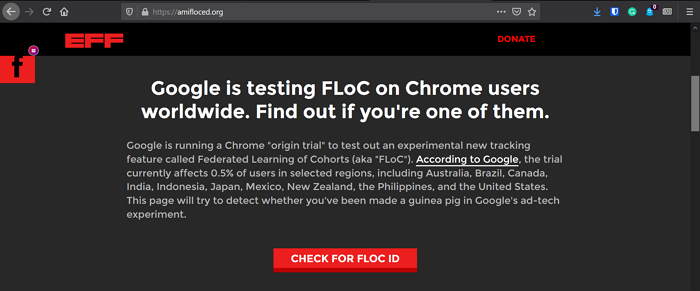You might have come across consent notifications on websites you visit asking you to allow cookies from the website. When you allow the cookies, they act as data collection agents which help advertisers place the ads that suit your needs or likings.
To put it in other words, have you ever wondered how you are seeing ads of a particular product or category which you had searched for in Amazon or other online eCommerce stores? This is possible only with the tracking and the data that the third-party cookies on your browser collect.
The data collected by third-party cookies help in creating a digital profile to target you with ads that suit your likes. Advertisers get the data they need through third-party cookies. There arises the question of where you think of privacy. Your privacy is compromised by those cookies. Your behavior is predicted by the algorithms and your decisions get influenced by the ads they serve.
Google decided to put an end to third-party cookies and give more prominence to users’ privacy. So, they are replacing the traditional third-party cookies with Federated Learning of Cohorts or FLoC. Let’s see what it is in detail and know how it affects your privacy.
What Is Google’s FLoC (Federated Learning Of Cohorts)

To put it directly, FLoC helps the advertisers in serving targeted ads based on their web behavior without third-party cookies. It is a browser standard that comes in Google Chrome where it collects the data about the user’s web browsing habits, preferences, activity, and the data is grouped with that of others with similar preferences and habits. The groups are called cohorts in technical terminology. A cohort consists of data of people with similar browsing habits. Each user in the group is assigned a cohort ID which is shared with the advertisers to serve ads. Whatever you do on the web, it is summarized into a cohort ID.
The cohort ID is then displayed to everyone you interact with on the web. The data an advertiser gets with FLoC is more detailed and large as compared to the data collected by third-party cookies.
Google Chrome uses an algorithm called SimHash which groups you into a cohort-based on the websites you visit. It calculates a cohort or FLoC ID every week based on your web activity in the past 7 days.
Read: What is Web Tracking? What are Trackers in browsers?
Why is Google’s FLoC bad for you?
Third-party cookies are given access to only certain data of a user. But with FLoC it is not the case. Here’s why Google’s FLoC is bad for you.
Predictability
Google wants to end the tracking done by third-party cookies. But, the replacement they proposed tracks more and collects a lot of information that usually not collected by the third-party cookies. A bad is being replaced with something evil, if we put it in general terms.
When you are using Google Chrome with FLoC enabled, the data enabled is put into a cohort, and you are assigned a cohort ID. Large organizations such as Google can predict everything about you with the cohort ID that contains almost everything you do on the web. Your interests, demographics, past behavior, etc can be predicted.
Read: How to opt-out of Google FLoC (Privacy Sandbox) in Chrome.
Browser Fingerprinting
The most important issue that every security researcher is pointing a finger at is Browser Fingerprinting. It is a practice of collecting small and discrete pieces of information from the user’s browsing activity to create a unique and identifiable profile for the browser. No browser has been successful in stopping Fingerprinting. Tor and some other browsers had to forego some features to stop fingerprinting that too not to the large extent. FLoC gives the advertisers and organizations whatever they want and powers the browser fingerprinting to the next level.
Read: Website Traffic Fingerprinting.
Exposure through Services
There are many companies that offer their services and ask you to login using Google to use them. There is a huge risk that the organizations can tie the information they collect through your Google profile to your FLoC ID. Reverse engineering can reveal your cohort ID and the information on the ID and the information collected through the account merge together to give a detailed digital footprint.
Currently, Google is testing the FLoC standard as a trial on Chrome users from Australia, Brazil, Canada, India, Indonesia, Japan, Mexico, New Zealand, the Philippines, and the United States. The trail consists of 0.5% of users from the selected locations.
DuckDuckGo, Brave and Vivaldi browsers have decided to start blocking Google FLoC.
Find out if you are FloCed

If you want to find if you are added to the trail run, visit amifloced.org and click on the CHECK FOR FLOC ID button.
We hope this article helped you understand what Google’s FLoC is and in checking your FLoC ID.
Read: How to protect Personally Identifiable Information on the Internet.
Leave a Reply